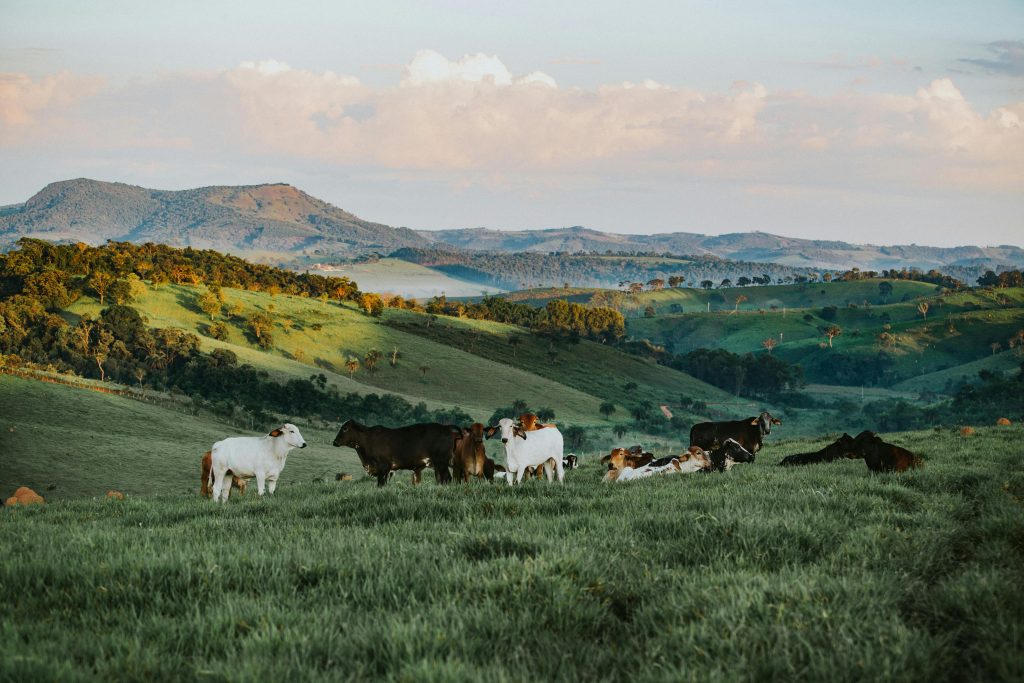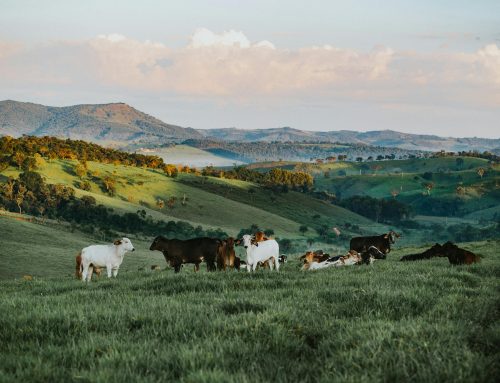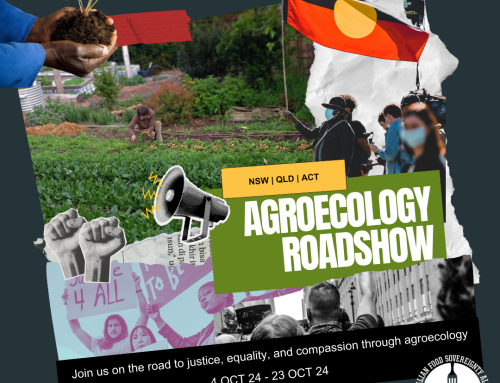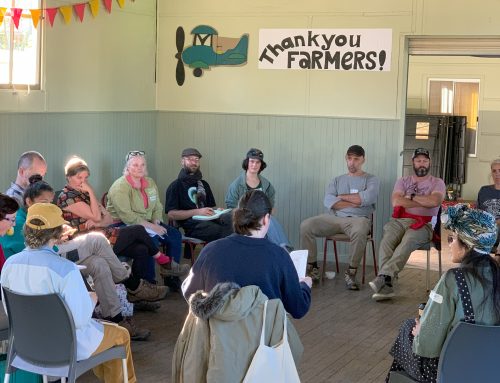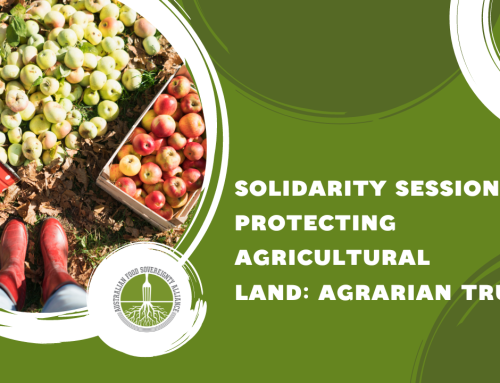The announcement of the end of custom kills at DBC abattoir in southwestern WA has sparked major concerns about the loss of viable options for small-scale livestock farmers in the west, mirroring a trend driven by corporate consolidation nationwide.
Zoë Allington of Allington Family Farm says, ‘The news we were given by DBC yesterday has devastated the whole community of small producers. Some producers have been getting their animals processed regularly at DBC for over 20 years and this change, and with only 4 weeks notice given, has left everybody in the lurch and uncertain of the future of their businesses and livelihoods.’
The announcement comes at a time when many regions in Australia have seen the closure or takeover of local abattoirs, with small- and medium-scale farmers increasingly impacted by diminishing options for processing their livestock.
Many large industrial abattoirs are vertically integrated operations that refuse to process private kills for small-scale farmers, the very farmers we need to fix our food system. Westpork – a vertically integrated intensive pork producer that supplies 50% of WA pork – bought a 50% share of DBC in 2022, leading to the inevitable de-prioritisation of local family farmers.
The Australian Food Sovereignty Alliance (AFSA), which represents small- and medium-scale farmers across Australia, the majority of whom sell their produce directly, has long advocated for governments to facilitate small-scale and locally-owned abattoirs to address this problem and help revitalise regional economies.
‘This cut will affect the longevity of small-scale, paddock-to-plate operations in WA as currently there are not many other viable, affordable options. The issue is that whilst we can look into other alternatives, such as setting up an abattoir that is formed by a cooperative, or whatever that looks like, takes time and resources which we don’t have right now. We have been given no time to make plans for the future of our businesses and especially as it is coming into the busiest time of year with Christmas coming ahead, we have already made plans for our processing and animals on the ground,’ says Zoë Allington.
The DBC decision underscores the disastrous effect not only on local farm businesses and livelihoods, but also on their communities’ access to ethically and sustainably produced meat, for which there is ever-growing demand in the face of community concerns about animal welfare and the environmental and climate impacts of industrial livestock production.
AFSA president and Victorian small-scale livestock farmer Tammi Jonas says that the DBC decision highlights an urgent need for policies which support diversification of the meat processing sector, and support smaller producers:
“Supporting a mix of small-scale local and on-farm abattoirs helps the regional economy through local processing and value-adding. A return to more local abattoirs that service small-scale farms would dramatically increase the resilience of local economies.”
Zoë Allington and other local farmers are devastated. Zoë says, ‘To be suddenly cut off and informed that as of 11th October we can no longer use the custom kill service at DBC has left us feeling extremely concerned as to what our business looks like moving forwards and because there aren’t many other alternatives, we are left wondering what the future of the small-scale, paddock-to-plate model looks like here in WA.’
There is already a growing movement to build small-scale facilities on farms, such as the decade-old Southampton Homestead poultry abattoir in WA, and several new micro-abattoirs on farms in Victoria, New South Wales and Queensland.
AFSA calls on WA Agriculture Minister Jackie Jarvis to implement emergency measures to assure access to existing slaughter facilities while committing to immediate support for the development of much-needed micro-abattoirs.
Media Contact: Tammi Jonas, AFSA President 0422 429 362
Zoë Allington, Allington Family Farm 0438 802 188
